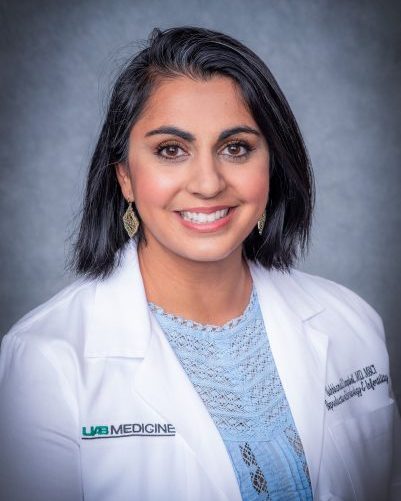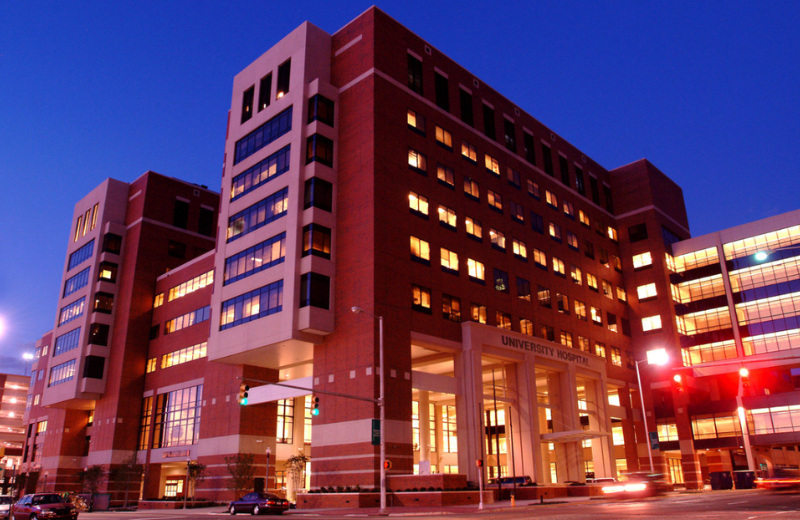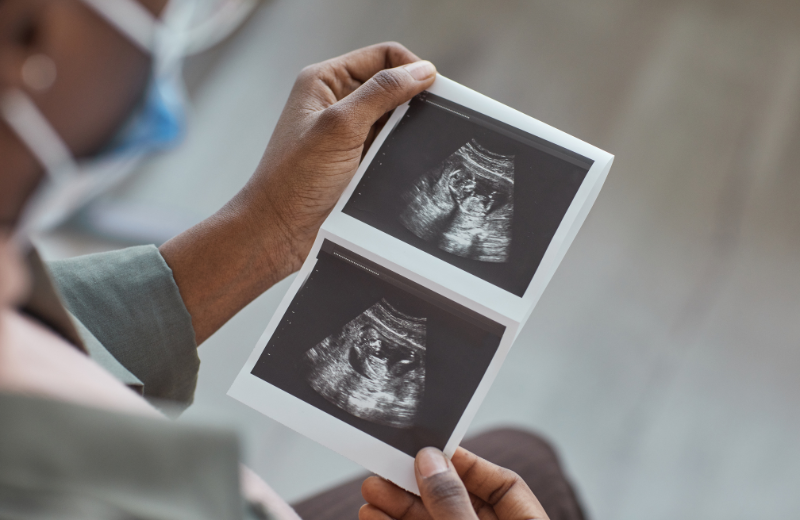Patients
View important updates for patients about the Alabama Supreme Court’s ruling that caused UAB to pause in vitro fertilization (IVF) treatments that involve egg fertilization or embryo development.
In Vitro Fertilization (IVF) involves harvesting eggs, inseminating them with sperm, and implanting the resulting embryo(s) into the woman’s uterus to achieve pregnancy. Women undergoing IVF receive daily injections of follicle stimulating hormone (FSH), which causes the ovaries to recruit additional follicles. Patients may also be administered drugs to prevent ovulation too soon, before retrieval of the egg. They are monitored several times and medications adjusted as necessary to prevent serious side effects. When the follicles are mature, human chorionic gonadotrophin (hCG) is injected and the patient is scheduled for transvaginal, ultrasound-guided egg retrieval under conscious sedation anesthesia. This is an outpatient procedure using a small needle and that is accompanied by minor discomfort. The retrieved eggs are prepared as is fresh semen from the partner. The semen is introduced into culture dishes containing the eggs. Patients scheduled for intracytoplasmic sperm injection, will have each egg injected with a single sperm. The fertilized eggs are put in incubators for about three days until the embryologist and physician judge that they are mature. Once the embryos mature, the patient will be scheduled for embryo transfer. Procedures such as assisted hatching or pre-implantation genetic diagnosis (PGD) may be performed prior to embryo insertion. Insertion is directly into the uterus using a small catheter.
UAB Medicine’s nationally recognized physicians have years of experience in diagnosing and treating both male and female infertility. We treat infertility with a team approach that includes a urologist, a reproductive endocrinologist, specialized nurses, and laboratory scientists. A variety of conventional treatments are available, including corrective microsurgery. For those who do not have a condition that can be treated, procedures such as intrauterine insemination or in vitro fertilization (IVF) may be used to help a couple get pregnant. Our fertility experts will determine a treatment plan that is best suited for each individual man and his partner. As a major center for research, UAB Medicine continues to investigate new advances in fertility treatment aimed at increasing the chances of conceiving healthy babies.
Care Providers
Videos

Resources
Related Specialties
- Amniocentesis
Cesarean Section
Fetal Neck Masses
High-Risk Pregnancy
Infertility
Male Infertility
Maternal and Fetal Medicine
Multiple Births
OBGYN Services
Preeclampsia
Pregnancy
Pregnancy and Heart Disease
Prematurity
Reproductive Endocrinology & Infertility Services
Transplant Services
Vasectomy Reversal
Women & Infants Services
Clinical Trials
Speak to your physician about your options and browse the link below for more information
Latest News
View All News-
UAB Medicine is the title sponsor of the GT World Alabama, benefiting Teal Wings of Hope
July 14, 2025
-
World-record-breaking quadruplets delivered at UAB
June 11, 2025
-
Hope and resilience: Two mothers from two different countries fight for one baby’s life
May 6, 2025
-
Cassell family donates $1 million to establish Bidirectional Cassell Family Training Program
February 13, 2025
-
Heartfelt homecoming: NICU families unite to thank UAB care team
December 19, 2024






